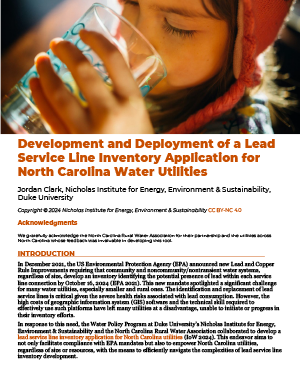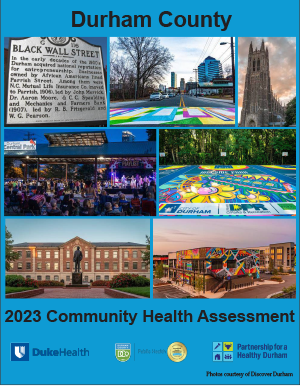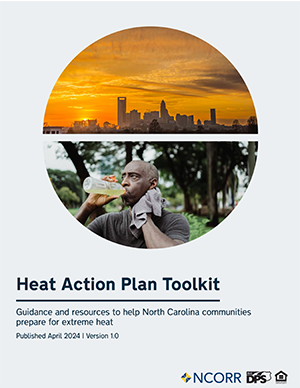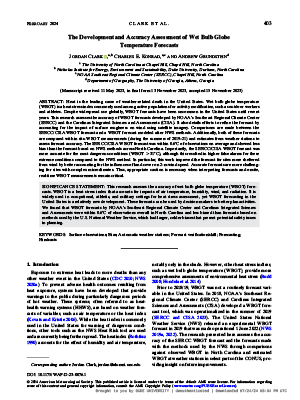Publications
A Geopolitical-Economy of Distant Water Fisheries Access Arrangements
Fishing fleets and effort have grown throughout the waters of lower-income coastal countries in recent decades, much of which is carried out by vessels registered in higher-income countries. Fisheries access arrangements underpin this key trend in ocean fisheries and have their origins in United Nations Convention on the Law of the Sea's (UNCLOS’s) goal to establish resource ownership as a mechanism to increase benefits to newly independent coastal and island states.
Development and Deployment of a Lead Service Line Inventory Application for North Carolina Water Utilities
This white paper presents an application designed to help North Carolina water utilities complete federally required lead service line inventories. Using available datasets, the application simplifies the inventory process, reduces software barriers, details development and utility engagements, and proposes enhancements for broader use. The paper highlights methods and future improvements, aiming to extend the tool's reach to help utilities nationwide manage lead contamination efficiently.
2023 Durham County Community Health Assessment
The 2023 Durham Community Health Assessment was produced as part of the accreditation process for the Durham County Department of Public Health and Affordable Care Act requirements for Duke Health. Nicholas Institute experts Ashley Ward and Jordan Clark contributed to a section on extreme heat, highlighting the disparate impact of extreme heat on Durham residents and current and future resources to mitigate the worst impacts of extreme heat exposure.
North Carolina Heat Action Plan Toolkit
With climate change driving more frequent and intense heat events, North Carolina's Heat Action Plan Toolkit aims to help communities adapt and build resilience to extreme heat. Primarily targeted for use by local governments, including health and emergency management departments, the toolkit focuses on approaches to reduce the human health impacts of increasing temperatures and heat waves.
Adapting to the Impacts of Climate Change: A Comparative Study of Governance Processes in Australia, China, and the United States
In 2023, UN climate proceedings (COP 28) made clear that challenges of adapting to climate impacts are now a priority comparable to the focus on mitigation (greenhouse gas reduction). Floods, wildfires, drought, and heat are causing great damage in the United States and other highly developed countries which, on paper, were prepared. The report explains that in contrast to mitigation (greenhouse gas reduction) and further now longstanding environmental governance approaches, adaptation may call for transformation of core governance structures, tools and resources.
Building an EV Workforce: A Review of Southeast Transportation Electrification Workforce Development Training Programs
With the advancement of the electric vehicle (EV) industry in the southeastern United States, from vehicle and battery manufacturing, to on-road EVs and accelerated deployment of charging stations, there is a substantial need for a skilled workforce to build and service these vehicles as well as install and maintain charging infrastructure. This study seeks to understand existing EV-specific workforce development efforts across ten states in the Southeast, and provide policy and program options for State Energy Offices, State Departments of Transportation, and other state agencies.
Evidence Library for Mangrove Degradation and Recovery
Mangrove ecosystems provide numerous benefits to both people and nature, including providing important habitat for wildlife species, nursery habitat for fish and shellfish, recreational opportunities, and protection for coastal communities. This evidence library synthesizes the scientific literature and expert knowledge to share information on what is known—and not known—about how storm-induced changes to mangrove ecosystems might impact mangrove ecosystem services.
Discrimination During Eviction Moratoria
Using data collected from an experiment that involved more than 25,000 inquiries of landlords in the 50 largest cities in the United States in the spring and summer of 2020, this analysis shows that the implementation of an eviction moratorium significantly disadvantaged African Americans in the housing search process. A housing search model explains this result, showing that discrimination is worsened when landlords cannot evict tenants for the duration of the eviction moratorium.
The Development and Accuracy Assessment of Wet Bulb Globe Temperature Forecasts
This research assesses the accuracy of wet bulb globe temperature (WBGT) forecasts. WBGT is a heat stress index that accounts for impacts of air temperature, humidity, wind, and radiation. It is widely used in occupational, athletic, and military settings for heat stress assessment, yet WBGT forecasting in the United States is a relatively new development. These forecasts can be used by decision-makers to better plan activities.
Observations and Estimates of Wet Bulb Globe Temperature in Varied Microclimates
Wet bulb globe temperature (WBGT) is a heat stress index that accounts for the effects of air temperature, humidity, wind, and radiation on humans. However, WBGT is not routinely measured at weather stations. This work demonstrated the accuracy of estimating WBGT with methods from Liljegren et al. (2008), finding it to be more accurate than measurements from a popular handheld meter, the Kestrel 5400 Heat Stress Tracker. Variations in WBGT that result in different danger levels were found between measurements over a tennis court and a neighboring grass field, and between sun and shade conditions. Understanding the magnitude of these differences and the biases with WBGT estimates and measurements can inform the planning of outdoor activity to robustly safeguard health.










